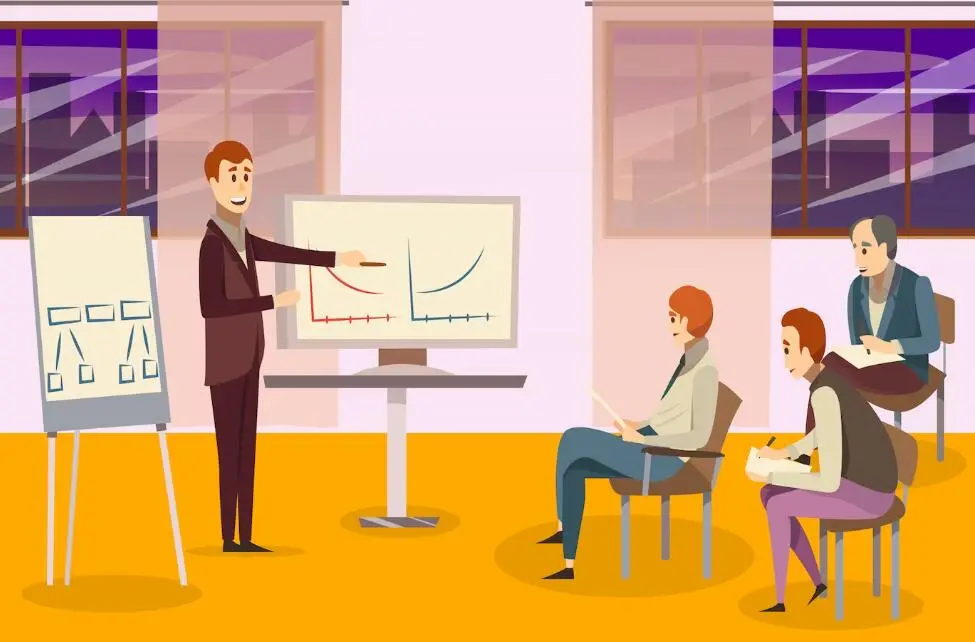In the evolving landscape of modern training, the role of a coach extends far beyond mere instruction. Coaches are instrumental in molding individuals, shaping their trajectories, and ensuring they reach their potential. For training institutions vested in fostering excellence, it is imperative to ensure that their coaches are not just equipped with knowledge but are also aligned with contemporary practices and methodologies.
In this article
- Part 1: 5 Innovative Coach Knowledge Assessment Ideas
- Part 2: OnlineExamMaker: A Free Coach Knowledge Assessment Aoftware for Trainers
- Part 3: How to Make a Coach Knowledge Assessment with OnlineExamMaker?
The Role of Coaches in Training Institutions
Today’s coaches wear multiple hats. They aren’t just educators; they’re mentors, guides, strategists, and at times, even therapists. Their responsibilities stretch beyond delivering content; they create conducive learning environments, address individual concerns, motivate, and guide trainees toward tangible outcomes. It’s a distinction between simply transferring information and genuinely coaching individuals to success.
The Importance of Regular Knowledge Assessments

Given the multifaceted nature of coaching, it’s unsurprising that the methodologies and principles surrounding it are ever-evolving. New research emerges, best practices get refined, and novel techniques get introduced. To ensure that coaches stay at the forefront of these developments, regular knowledge assessments become indispensable. It’s not just about maintaining a standard but elevating the entire coaching experience for trainees.
5 Innovative Coach Knowledge Assessment Ideas
1. Scenario-based Role-playing:
In a controlled environment, coaches step into simulations of real-world coaching challenges. These scenarios, designed to mirror actual trainee situations, assess a coach’s adaptability, approach, and problem-solving acumen. The spotlight is on their communication prowess, their knack for conflict resolution, and their ability to harness motivation effectively.
2. Digital Portfolio Submissions:
The digital age empowers coaches to maintain e-portfolios—a compendium of their coaching sessions, feedback mechanisms, and strategies employed over time. By assessing these portfolios, institutions can gauge a coach’s commitment to innovation, their fidelity to best practices, and the tangible outcomes they’ve achieved with trainees.
3. Interactive Workshops:
Here, coaches become the students. In live workshops, they’re tasked with demonstrating their coaching techniques in real-time. Their peers, a mix of fellow coaches and assessment experts, evaluate them. Such peer evaluations, often candid and direct, provide invaluable insights into a coach’s effectiveness and areas that might benefit from refinement.
Pro Tip
Want to assess your learners online? Create an online quiz for free!
4. Feedback-based Assessments:
Who better to evaluate a coach’s impact than the trainees themselves? By soliciting feedback from trainees, and even peers, institutions can get a grassroots-level understanding of a coach’s methodologies. Such feedback, candid and firsthand, highlights a coach’s strengths and pinpoints areas that might benefit from enhancement.
5. Knowledge Quizzes and Tests:

While hands-on assessments are crucial, there’s also an undeniable place for theoretical testing. Regular quizzes, crafted around the latest coaching methodologies, industry-specific knowledge, and psychological principles, serve to assess a coach’s foundational and advanced knowledge and its real-world applicability.
Incorporating Continuous Learning in the Assessment Process
Knowledge assessments shouldn’t just be about gauging what a coach knows; they should also inspire what they can learn next. Continuous learning is the bedrock of effective coaching. By encouraging coaches to partake in seminars, workshops, and advanced courses, institutions ensure that their coaches aren’t just keeping pace with the industry but often leading it.
Challenges and Solutions in Implementing Assessments
Of course, implementing a robust assessment system isn’t without its challenges. Coaches, already juggling myriad responsibilities, might view assessments as additional burdens. Time constraints could emerge as significant obstacles, as could logistical issues. However, solutions abound. Flexible assessment schedules, the integration of digital platforms for remote assessments, and a system of incentives (like certifications or advancements) can make the assessment process smoother and more embraced.
Conclusion
Training institutions stand at a pivotal juncture. Their reputation, the quality of their trainees, and their overall impact is intricately tied to the coaches they house. By investing in rigorous and innovative coach knowledge assessments, these institutions don’t just uphold a standard of excellence; they actively contribute to the growth and evolution of the coaching profession. In this endeavor, every assessed coach becomes a beacon of knowledge, guiding trainees towards a brighter, more informed future.
OnlineExamMaker: A Free Coach Knowledge Assessment Aoftware for Trainers
OnlineExamMaker is a feature-rich assessment software that streamlines the process of creating, delivering, and evaluating assessments. With its extensive range of features, including flexible test creation, secure online proctoring, customizable assessments, automated evaluation, and comprehensive analytics, OnlineExamMaker empowers trainers to conduct efficient and reliable coach knowledge assessments.
Key Features:
Live Monitoring: Monitor and record test takers’ activities during the exam so you can review for cheating or other suspicious activities later.
Bulk Import Candidates: The exam organizers are able to import multiple candidates from their computers to a group using the import excel feature.
Registration System: Allow candidates to set up their own individual username/password to login, and they are able to check the exam report in the exam taker panel.
How to Make a Coach Knowledge Assessment with OnlineExamMaker?
Step 1: Login to OnlineExamMaker platform.
Step 2: Prepare coach assessment questions, you can upload questions in bulk.
Step 3: Create a new assessment and modify settings.
Step 4: Save quiz settings, then share it to candidates.
Create Your Next Quiz/Exam with OnlineExamMaker